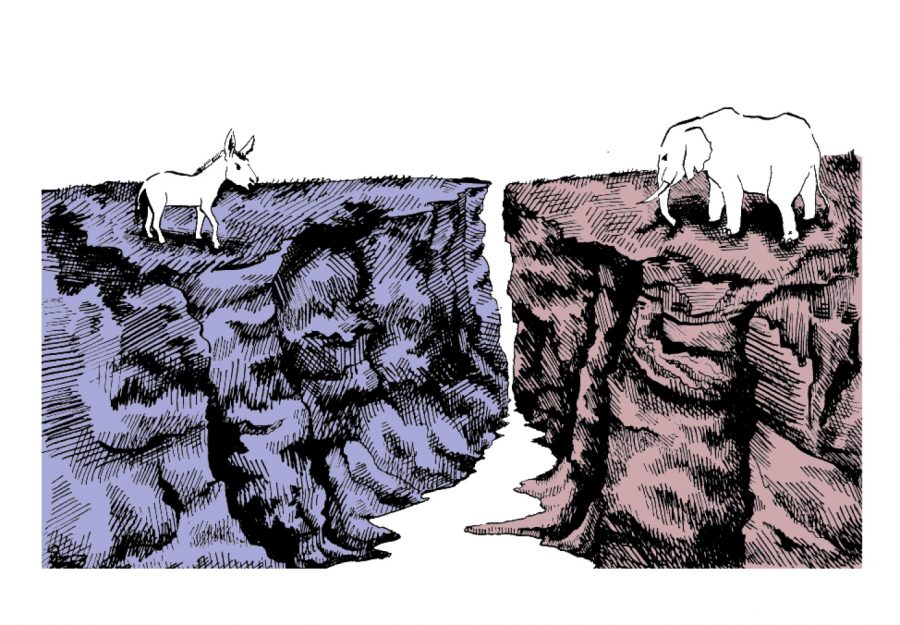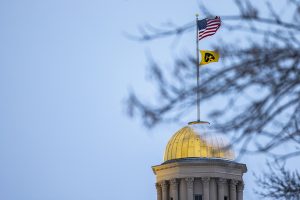Opinion: Political polarization hurts relationships, not just governments
Rising tensions in national politics have consequences outside of Washington.
September 10, 2019
As I watch 2020 presidential candidates parade through Iowa, I can’t help but be apprehensive toward an election that is destined to deepen democracy’s divide in the United States.
We should vote in line with our individual morals and beliefs rather than with our political party that rarely represents all of our views. Parties should be an approximation of where one stands, not an unyielding part of their identity.
On the night of the 2016 presidential election, I wasn’t watching the news; I was cuddled up next to my cat while watching a movie. Despite the calm bubble I had constructed for myself, I could still feel the tension between my relatives rise because of their conflicting political views.
Donald Trump was elected to hold the nation’s highest office. I didn’t want him to win, but his far-right idealism angered me less than the stream of hate-filled, blue iMessages my mother received from various relatives. Why? She had voted differently from her family members.
Three years since receiving those text messages, and things still haven’t improved. I once aspired to be like the relatives that were now treating members of my family with disrespect — a mindset that I wish was foreign to me.
Countless families similar to mine were left fragmented in 2016, with those holding right and left ideologies unwilling to leave their views at the ballot box, splaying them across the family dinner table. And from where I’m sitting, we are far from seeing the light at the end of the tunnel.
This split isn’t unique to my family’s experience. According to a Gallup poll, the percentage of Americans who see the country as “greatly divided when it comes to the most important values” has risen from 66 percent in 2012 to 77 percent in 2016.
It’s not a perception problem either; more than 90 percent of both parties’ members are more extreme than the median member of the other party, according to the Pew Research Center. This is an increase of more than 20 points since 1994.
It may be inconceivable to begin the mending process. This is reflected with the deep polarization in Washington, where lawmakers seldom collaborate and partisanship prohibits what could be productive policy. This should not only resound with politicians, but with voters as well.
The 2020 election is foreordained to be a pivotal point in the history of the United States. I’m afraid it will split us in ways worse than imagined if we continue to enable the partisanship that filters out loved ones whose views differ from our own.
Columns reflect the opinions of the authors and are not necessarily those of the Editorial Board, The Daily Iowan, or other organizations in which the author may be involved.





